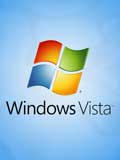Do you really need Windows Vista?


Let's take a look at who needs Windows Vista, who might benefit from it and those who might want to give it a wide berth.
[poll id=70]
Next -->
Hardware Support
To be honest, when you think about it, very few people will actually need Windows Vista come January 30th. Nothing changes at the stroke of midnight - XP will still work and all your existing hardware and software applications will continue to function.
In fact, the only people desperately awaiting Windows Vista are those who want to make use of AMD's Quad FX platform. These people will need Windows Vista Ultimate for the technology to work. Apart from that, most hardware will continue to support Windows XP for years to come and you could quite safely sit back and wait for Vista to mature and for a service pack or two to be released before investing.
Another advantage of sticking with XP in the interim, especially if you're a gamer, is the quality of hardware drivers, especially graphics cards. Despite the fact that both ATI and NVIDIA have released drivers for their Vista hardware, these aren't as good at the drivers currently available for XP (I'm still seeing problems in games such as Oblivion under Vista - nothing major, more annoying really, but it'll take some time for the drivers to settle down). There are other casualties, such as Creative's DirectSound based EAX - this doesn't work under Vista. This is used by many of the popular games and it's loss is noticeable. Updates are planned but don't hold your breath.
If you're thinking about upgrading to Vista, check your hardware carefully and make sure you can find Vista drivers for everything. If you can't find drivers, you could find yourself having to spend more money.
Software Support
As with hardware support, most software will continue to support XP for some time to come. Years probably. While Windows Vista brings with it DirectX 10, no games currently supports this version of DirectX. Games requiring DirectX 10 will eventually hit the shelves, but you can be sure that game studios won't do this until Vista hits critical mass. (Also, returning to hardware considerations for a moment, the current power requirements of DirectX 10 graphics cards – most now consume around 300W – will put people off. GPU makers need to work on taming the power consumption of these cards before they become mainstream.)
Releasing a game that required DirectX 10 within the next 18 months would be an example of the studio shooting themselves in the foot with great precision. The only studio that might is Microsoft itself, but I don't see that happening. Gamers can happily stick with XP for at least a year.
For some people support is their main worry. Many fear that Windows Vista means that Microsoft will no longer support XP. This isn't true. Microsoft will continue to support Windows XP Home, Media Center and Professional for the next 2 years (mainstream support ends in April 2009, free security updates will continue until 2014).
Software support also works the other way. Just because some software applications work on XP doesn't mean that it will still work under Vista. Software such as security applications will need to be updated (depending on what product you use, this upgrade could be free or it could cost you) as will many DVD burning utilities such as Nero. Make sure that you factor in these costs before upgrading because if you don't, you might end up spending a lot more money than you'd planned on.
Some products, such as Paragon's Hard Disk Manager doesn't yet have an update that makes it work under Vista.
Next -->
Security
One of the biggest selling points of Vista is security. In fact, it's one of the biggest selling points as far as I can see. There are a number of features specific to Windows Vista that are designed to make it safer. However, most of this remains untested in the real world against real hackers.
While I'm convinced that some of the new features such as UAC (User Account Control) is going to make it harder for malware to get a foothold on your system, I'm also bracing myself for a load of updates. When it comes to security, Windows Vista can't and won't replace simple common sense.
BitLocker (available as part of Windows Vista Enterprise and Ultimate) is also a huge step forward as it offers robust and reliable full-disk encryption.
The User Interface
Love it or hate it, Vista has a new UI. Putting Aero aside (which is nice, but nothing more than eye candy) the main thing to remember about Vista is that it's designed with audio, video and images in mind. It takes a little getting used to, but overall it's a huge improvement over XP.
On larger screens running at higher resolutions I find the new UI much better on the eye that XP is. Things on the screen in XP start to get small when running a 19 inch monitor at 1024x768. Vista is a lot easier on the eye at higher resolutions.
Conclusion
The truth is that very few people will actually need Vista when it's released at the end of the month. A far greater driver in upgrading that need is want. If you're buying a new PC, you might want to opt for Vista even if XP is on offer. If you want to remain at the cutting edge then you'll want Vista. If you like trying out new software, you'll again want Vista.
If the want isn't there right now, no worries. Windows users won't need to upgrade for some time to come.
Whether or not you'll want to spend the money … well, that's another issue entirely.
What are your reasons for wanting (or not wanting!) to upgrade to Windows Vista when it is released?
<< Home >>